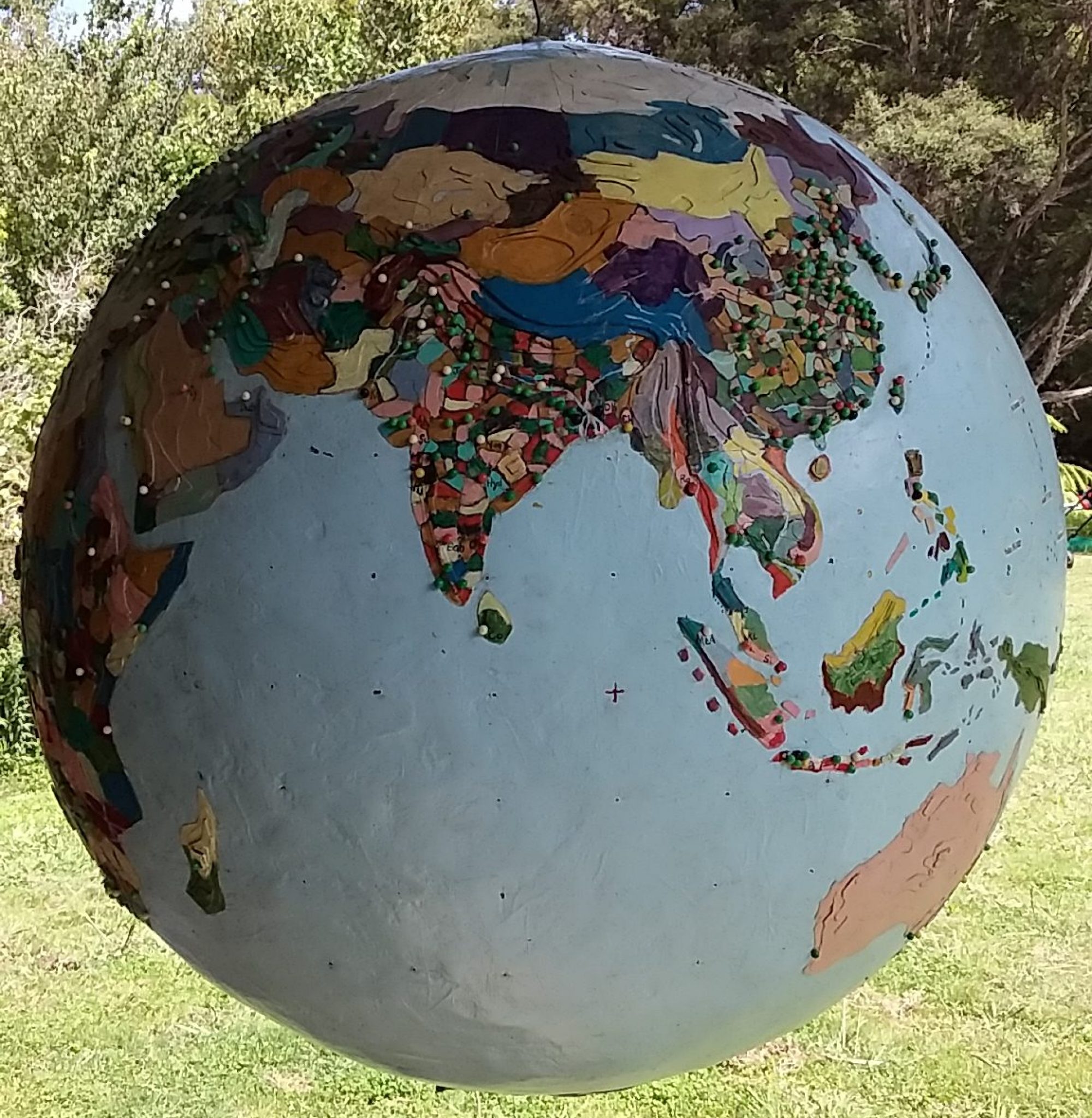Alexandria
Millisphere: a discrete region inhabited by roughly one thousandth of the world population.
Alexandria (5.2 million) was founded over two millennia ago by Alexander the Great when he had a causeway built to Pharos Island, creating two harbours where the Nile Delta meets the Mediterranean. Famous for its lighthouse and library it became a centre for learning and the exchange of ideas – where classical Greece met animist Africa.
Alexandrian geographers mapped the then known world, observed that it was round and correctly estimated its diameter. Alexandria was where the bible was translated from Hebrew into Greek and where Euclid wrote his treatise on geometry. Indian sadhus mixed with Jews and Greeks in the bazaar and trade goods from Africa, Asia and Europe changed hands.
The destruction of the greatest library of antiquity coincided with the arrival of Christianity from Palestine and fanatical monks lynched the neoplatonic woman philosopher Hypathia. Woman fared little better with the arrival of Islam. Ninety-seven percent of Egyptian women have been subjected to genital mutilation, which has been banned since 1996 (New Internationalist 2007).
.The medieval traveler, Ibn Battuta, passed through in the fourteen century, en route from Morocco to Sumatra, and back, well before the Portuguese got to India. The strategic Suez crossing from the Mediterranean to the Red Sea drew the French and English in the nineteenth century and by the twentieth century Alexandria, “the Paris of the Mediterranean”, lingered on as Egypt’s intellectual capital long after the political capital had moved to Cairo.
I revisited Laurence Durrell’s Alexandrian Quartet, which I’d read in the 1970s. In volume four the narrator arrives in Alexandria in the middle of the night, appropriately by boat from Greece, and he observes German bombers, spotlights, bomb flashes and gunfire before coming ashore. As well as refugees fleeing the Nazi advance across the Mediterranean, Alexandria’s exotic mix included the New Zealand army heading up the coast to El Alamain.
During WWII Alexandria had a Jewish population of around 50,000 and Egypt’s population was under twenty million. Now Egypt’s population is over one hundred million and there are only about 60 Jews still living in Alexandria. Greeks had dominated Alexandria until the 1950s, and then, overnight, Abdul Nassar expropriated the Greek banks and business and expelled the Jews, British and French at the same time – leaving Alexandria to be impoverished by nationalism and decades of corrupt state socialism. Families who had lived in Alexandria for centuries, some for millennia, were forced to emigrate.
In Clea, Durrell devotes a chapter to the art of writing, including the writer’s self-doubt. After losing my Tuesday slot in the Whanganui Chronicle to Kevin Page I did pause to ask myself if I had anything to say. “The vanity and laziness of the artist is matched by the self indulgent blindness of the people,” counselled Durell, but, he continued, “there is always the chance that the writer stumbles on The Great Inkling – the blinding second of illumination”.
The “millisphere” explores the fact that there have never been so many humans inhabiting the world – coming up for eight billion in total. Forget everything else – this is the biggest issue facing the earth in the twenty-first century.
Each millisphere has a unique environment. As the Nile approaches the Mediterranean it fans out into multiple branches, lakes and wetlands. Near Alexandria is Lake Mariout. During antiquity the lake covered 700 square kilometres. In the beginning of the 20th century it was 200 square kilometres and in the beginning of the 21st century it had shrunk to 50 square kilometers. Originally it had no mouth to the Mediterranean and oscillated between freshwater and dry before the Nile floods. In 1801, during the siege of Alexandria, the British cut the freshwater canal to Alexandria and Lake Mariout turned from freshwater to brackish. Today the lake is also polluted by sewage and factory waste.
In Egypt’s 2011-12 parliamentary elections the Muslim Brotherhood’s Freedom and Justice Party won nearly half the seats. Attacks on Coptic Christians and tourists, corruption and general ineptitude led to the overthrow of Morsi’s “brotherhood” government in 2013.
Alexandria’s future lies in its past when, unlike today, it was a multicultural intellectual beacon in the Mediterranean.
